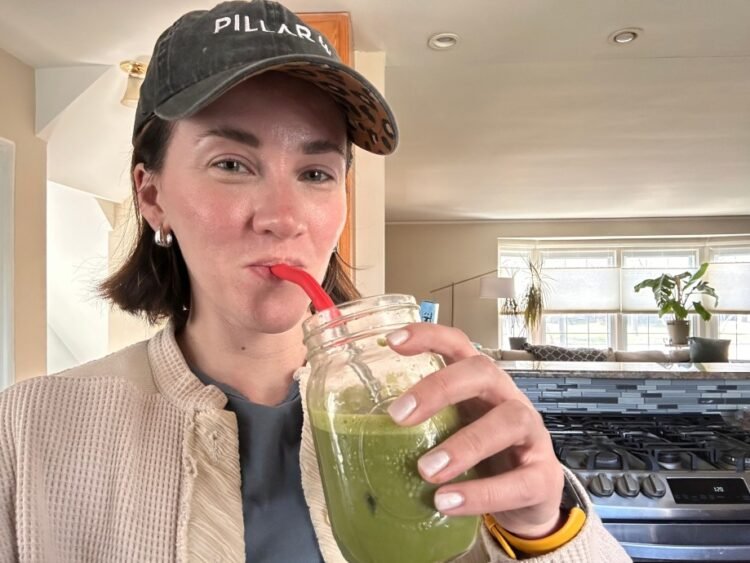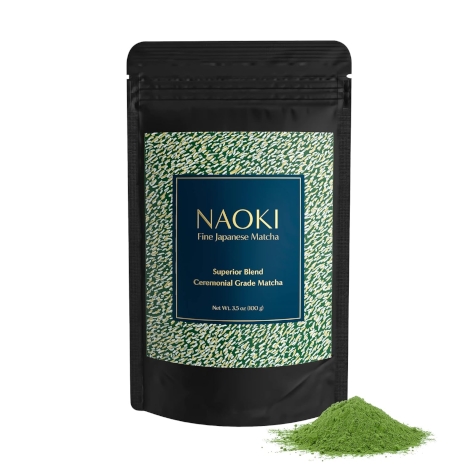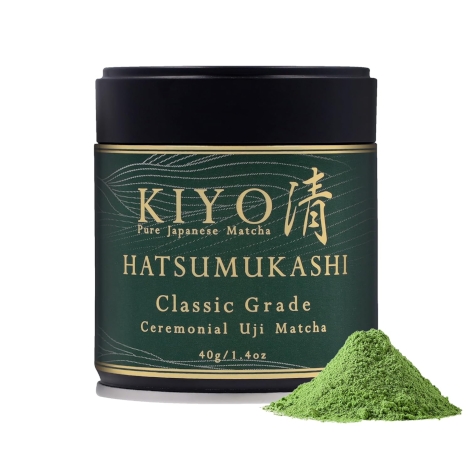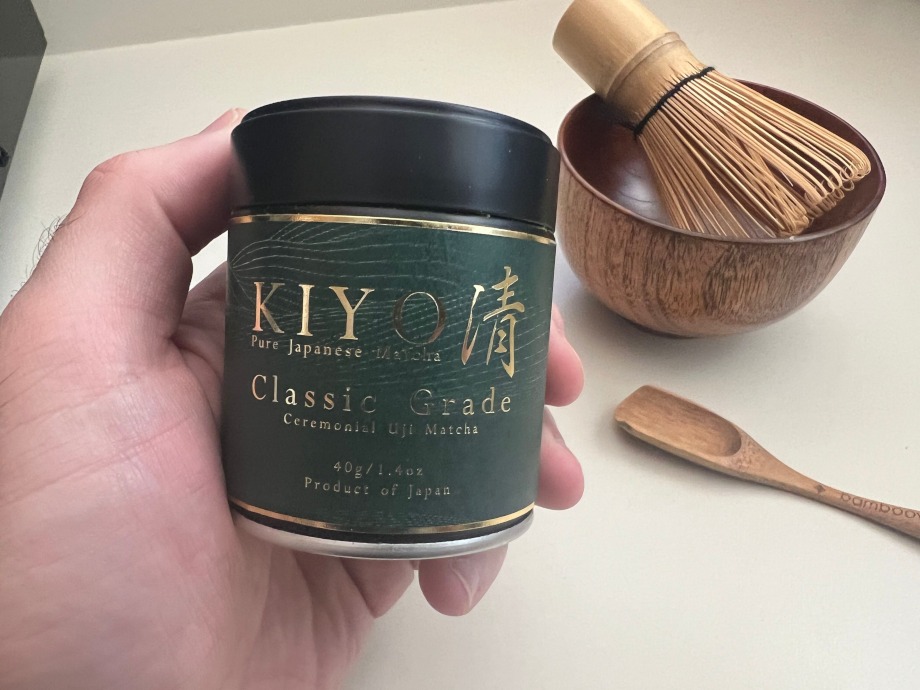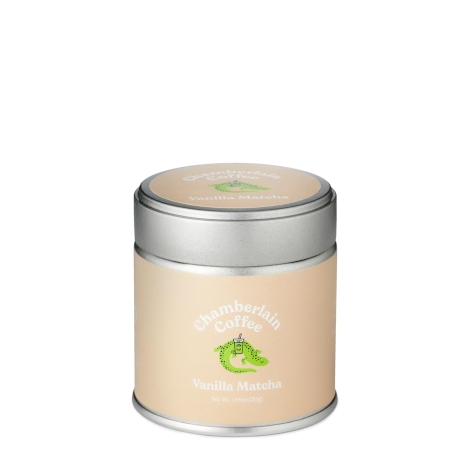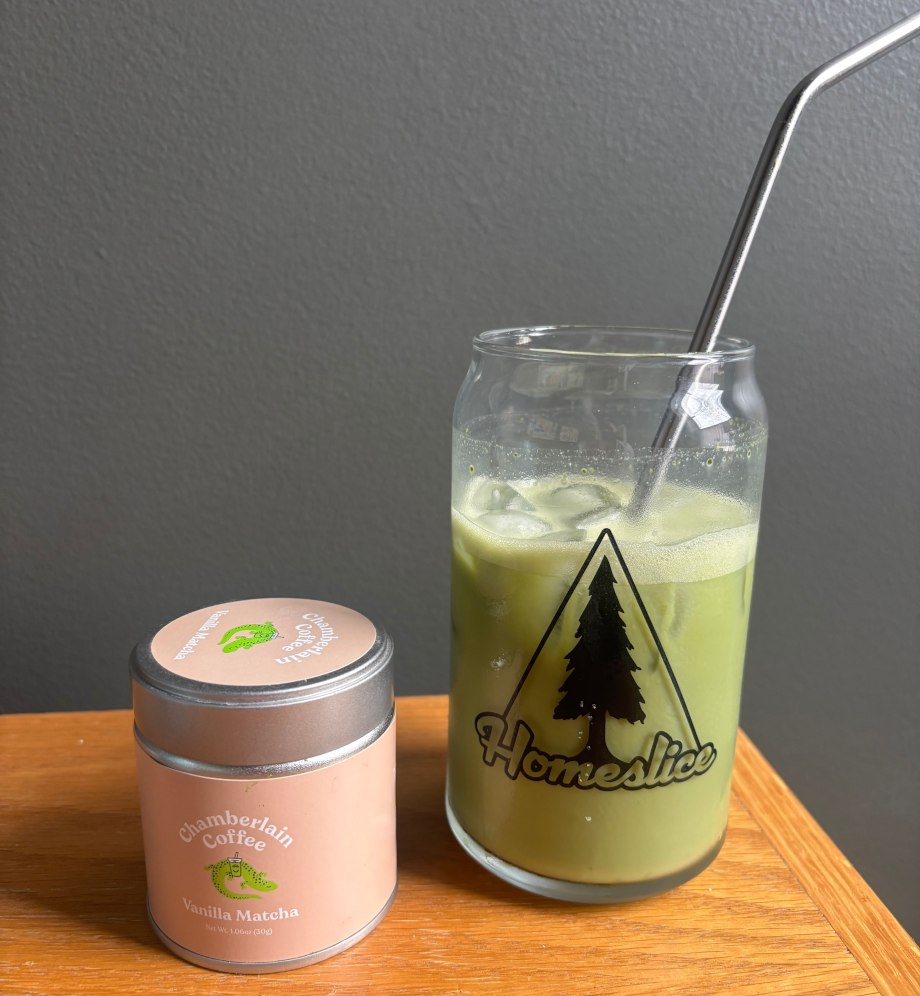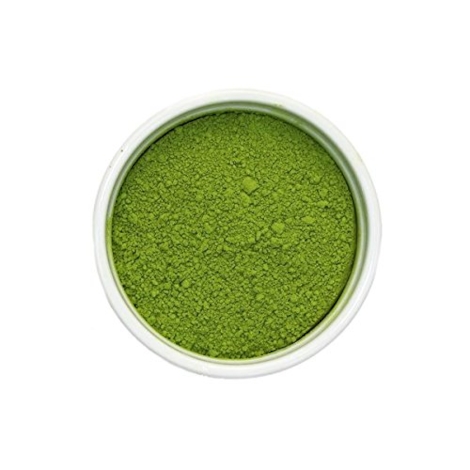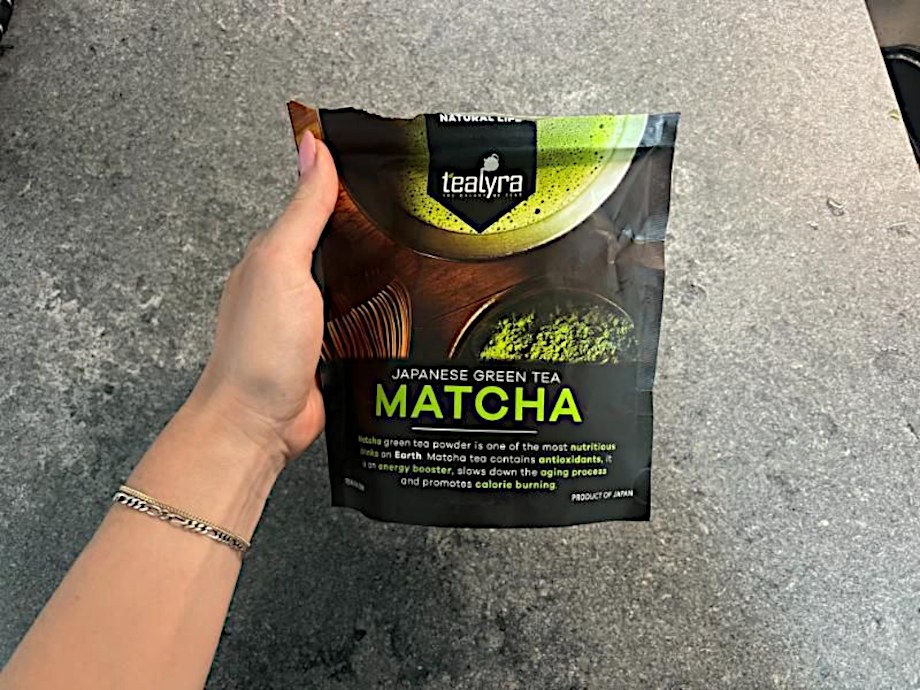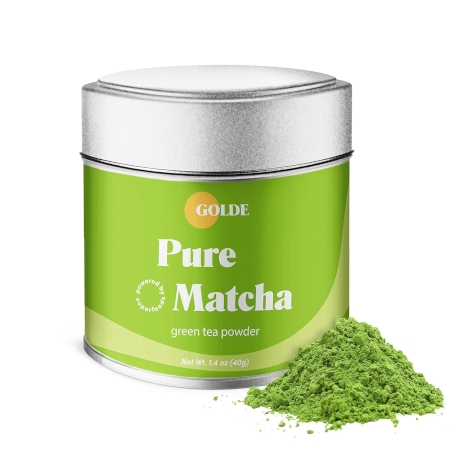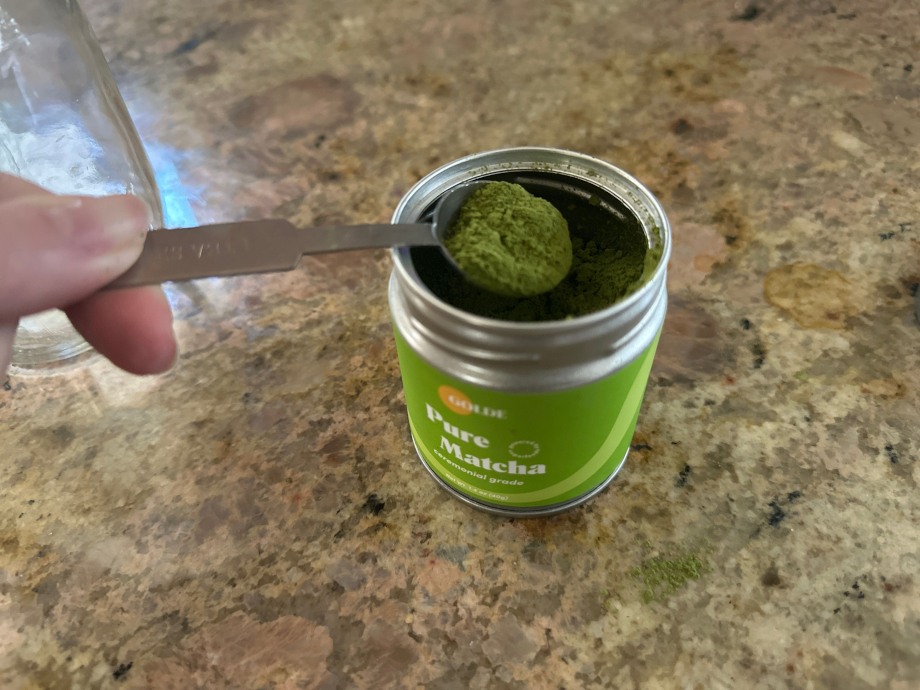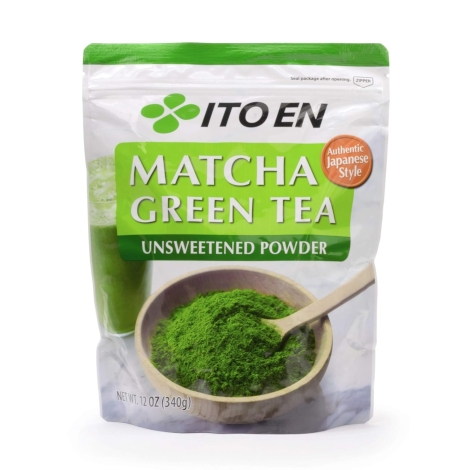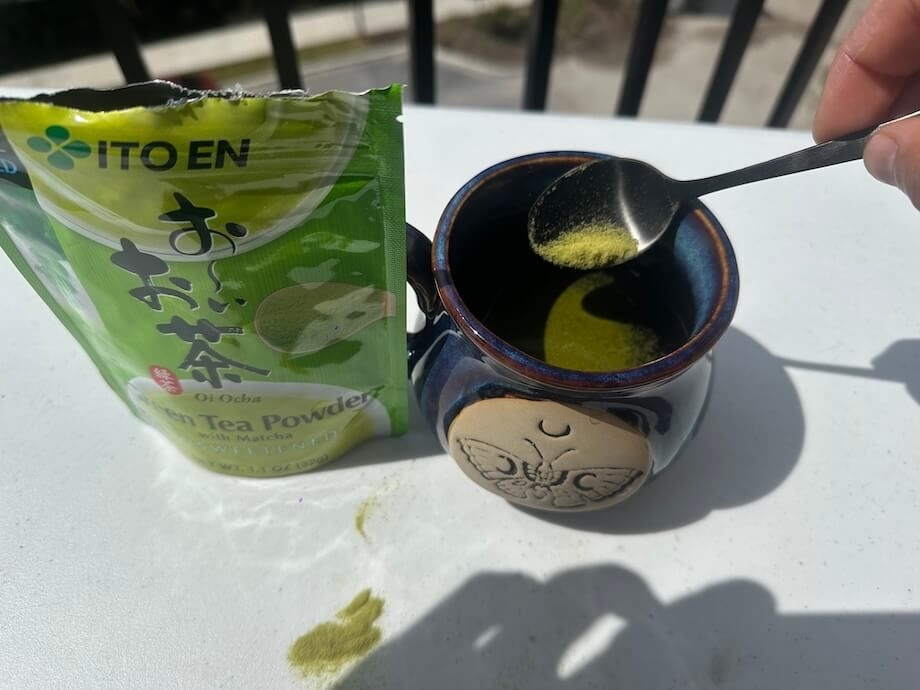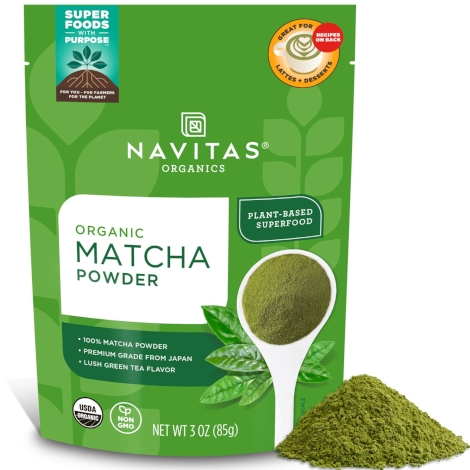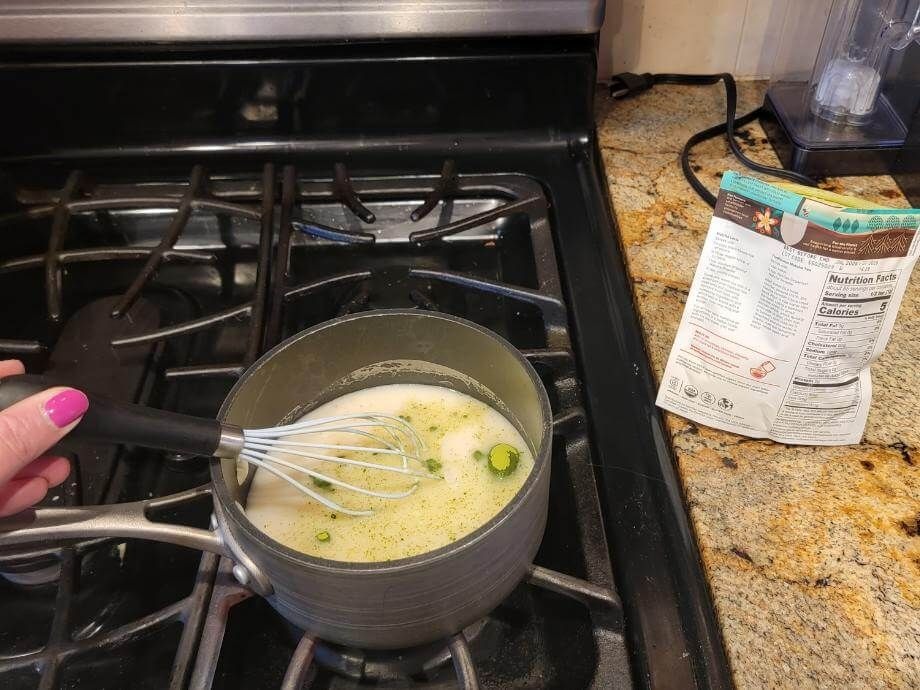We test and review fitness products based on an independent, multi-point methodology. If you use our links to purchase something, we may earn a commission. Read our disclosures.
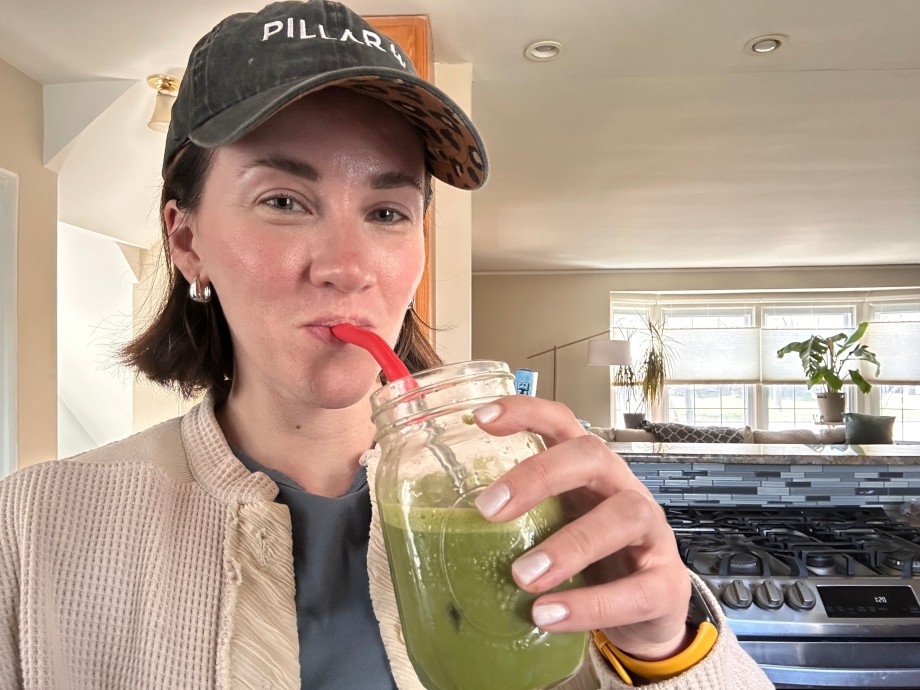
If you’ve been in a coffee shop over the last year, you may have noticed the growing popularity of matcha lattes, drinks, and even baked goods. Indeed, health-conscious individuals have been switching out the best energy drinks in favor of the mild caffeine content of matcha powder and tea, which also happens to be rich in antioxidants and amino acids1 as well.
The rise in popularity of matcha has led to people seeking out the best matcha powder to replicate these tasty drinks in the comfort of their own homes. Still, there’s a lot to consider with matcha—the timing of harvesting, the region the tea is sourced from, and the variety of tea leaves.
Lucky for you, we’ve tested out top matcha powders on the market, ranging a multitude of prices, grades, and uses. With each matcha powder, we used a 1-to-5 rating scale in the following categories:
- Price
- Formulation and purity
- Ease of preparation
- Taste
- Side effects
I also talked to Emelie Wilkes, Director of Retail Operations at HEX Coffee, Kitchen, and Natural Wines, who has over a decade of experience in the coffee and tea industry. She gave me things to look out for while shopping for your matcha powder, as well as tips for properly preparing matcha. Now, let’s take a look at the best quality matcha for your specific needs.
Medical disclaimer: This article is intended for educational and informational purposes only. It is not intended as a substitute for medical advice. For health advice, contact a licensed healthcare provider.
Best Matcha Powders
Best Overall Matcha Powder: Naoki Matcha Superior Ceremonial Blend
Good for: People wanting a nice matcha for drinks at a good value
Naoki Matcha Superior Ceremonial Blend
Pros
Cons
Naoki Matcha Superior Ceremonial Blend is a ceremonial-grade matcha with a mild taste, ideal for newer matcha users. Sourced from first harvest leaves in the Uji region of Japan, this matcha powder is high-quality and priced competitively.
Best Matcha Powder for Lattes: Kiyo Classic Grade Ceremonial Matcha
Good for: Matcha drinkers that want a quality latte made at home
Kiyo Classic Grade Ceremonial Matcha
Pros
Cons
Kiyo Classic Grade Ceremonial Matcha provides ceremonial grade matcha at a fairly affordable price, making it a decent entry-level matcha for new users. Source from the Uji region of Japan, this powder has a smooth and balanced profile, ideal for lattes, cold brew, or traditional Japanese teas.
Best-Tasting Matcha Powder: Chamberlain Coffee Ceremonial Matcha Green Tea Powder
Good for: Flavor seekers who want to try matcha with a twist
Chamberlain Coffee Ceremonial Matcha Green Tea Powder
Pros
Cons
Chamberlain Coffee Matcha Green Tea Powder combines high-quality matcha powder with unique flavors, including Peach and Mango. With the flavor options available, this can be a nice entry point for those new to matcha, although it’s a pricier cost than other competitors.
Best Value Matcha Powder: Tealyra Samurai Ceremonial Grade Matcha
Good for: People wanting a ceremonial grade drinking matcha that’s competitively priced
Tealyra Samurai Ceremonial Grade Matcha
Pros
Cons
Tealyra Samurai Ceremonial Grade Matcha offers a traditional matcha experience with a high amount of antioxidants and moderate caffeine. With a smooth flavor, it’s a great option for budget shoppers looking for a high value ceremonial-grade matcha.
Best Splurge Match Powder: Golde Pure Matcha
Good for: Tea drinkers who’d like to splurge on a high-quality, ceremonial grade matcha
Golde Pure Matcha
Pros
Cons
Golde Pure Matcha offers a high-quality, ceremonial grade matcha experience with a smooth flavor. With about 60 milligrams of caffeine in each serving, it provides a subtle energy boost as well, making it a great choice for those sensitive to caffeine.
Best Matcha Powder for Beginners: Ito En Matcha Green Tea
Good for: Curious new matcha drinkers wanting a simple matcha to try out
Ito En Matcha Green Tea
Pros
Cons
Ito En Matcha Green Tea Powder offers a versatile and affordable option for everyday use, suitable for beginners and those new to drinking matcha. While it’s not ceremonial grade matcha, the budget-friendly matcha is great for drinks or baking.
Best Matcha Powder for Baking: Navitas Organics Matcha Powder
Good for: Matcha lovers who want to craft baked goods with hints of umami
Navitas Organics Matcha Powder
Pros
Cons
Navitas Organics Matcha Powder provides a versatile and affordable option for those looking to incorporate matcha into their daily routine. This premium culinary grade matcha powder can be used for lattes, baking, and more, although it has a more earthy taste than most ceremonial grade matchas.
Other Matcha Powders We Researched
With the rise of matcha’s popularity, there are also an abundance of brands and companies supplying matcha powders. Naturally, we couldn’t put them all on our list of top picks. Here are a few honorable mentions we noted in our research:
- Encha Ceremonial Grade Matcha Powder: Encha Matcha is a high-quality powder that’s ceremonial grade and derived from first harvest leaves, making it great for matcha drinks and traditional teas like usucha. We haven’t had a chance to test this matcha out yet, though.
- Blue Bottle Coffee Craft Matcha: Blue Bottle Craft Coffee Matcha is a popular matcha online, plus you can bundle a matcha tin with a nanofoamer, used to froth and smooth your matcha latte. Unfortunately, this matcha was out of stock during our testing period.
- Ippodo Ikuyo Matcha: Sourced from Kyoto and run by a small family for the past three centuries, Ippodo Matcha is high-quality tea powder produced entirely in Japan. With the premium quality comes a premium price, however.
- Jade Leaf Matcha Latte Mix: This matcha latte mix is made with matcha powder, but sweetened with cane sugar. This may be a good pick for those who may need a little sweetness added to their matcha lattes or smoothies.
How We Picked and Tested the Best Matcha Powders
We looked at quite a few factors when selecting the best matcha powders, making sure we factored in price points, the quality of matcha, and its sourcing. When we decided to test, we looked at several factors, giving each one a score between 1 and 5. After looking at customer service and customer reviews as well, we averaged out these scores to award each matcha an overall score.
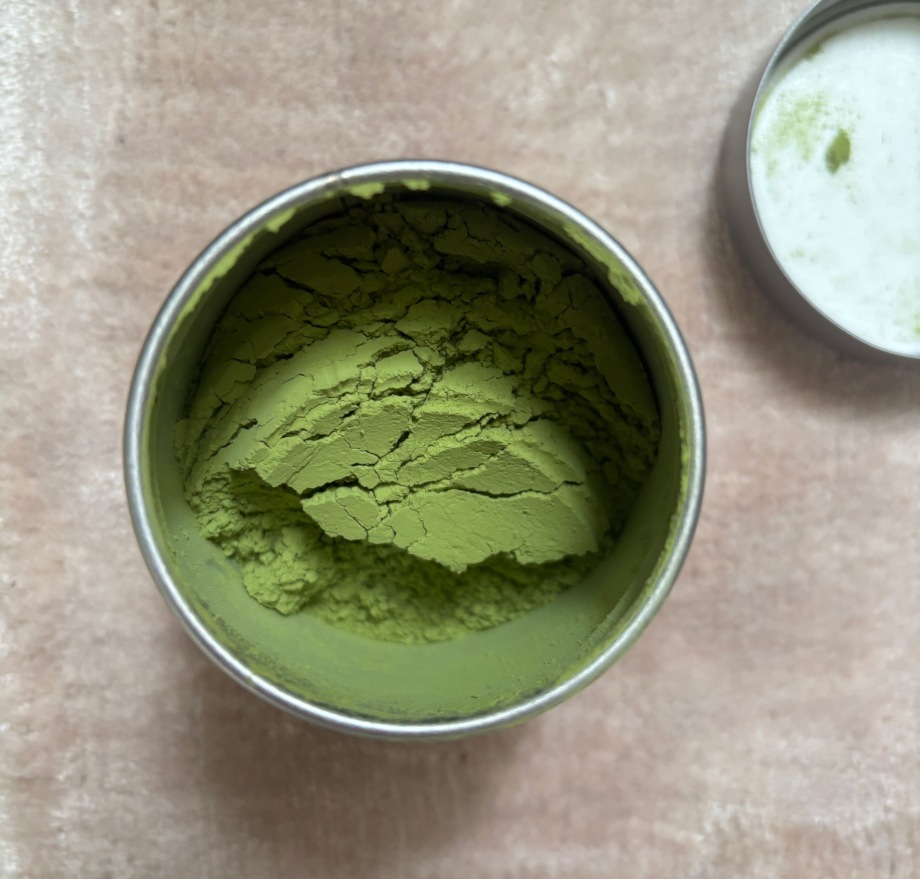
Here is a breakdown of the aspects we scored in our testing.
Price and Value
Typically when we’re talking about the best pre-workout or other supplements, we score based on the supplement’s price per serving. However, matcha powders can be variable on its serving size, based on how strong or weak you’d like the tea to be. Matcha servings can be as little as 0.5 or 1 teaspoon, although some recommend an entire tablespoon for some recipes.
Because there’s no exact serving size, we kept the scoring objective by going with a standard serving size—a teaspoon, or 2 grams of matcha. Just note that the number of servings can vary, depending on the amount of matcha you’re using.
With that in mind, the price per 2-gram serving of matcha can vary drastically, depending on the quality and size of the container used. Ceremonial grade matcha—ideal for drinking—can cost less than a dollar per serving in some powders, but higher-quality or certified organic matcha powders can cost $2 or $3 dollars for a serving. We noted prices, and also factored in the quality of the matcha into our scoring of the value.
Formulation
The quality of matcha powder can vary depending on the region or location that it’s been grown and sourced from, as well as harvesting time or any other additional ingredients added. We gave top marks to matcha sourced from Japan without any added filler ingredients or sweeteners. The best of the best came with proof of quality assurance, either through third-party testing or certifications.
Preparation
Traditional matcha is prepared by whisking matcha into hot water—not boiling, though. “If water is too hot, or too cold for that matter, it can impact the flavor of your matcha,” says HEX Coffee’s Director of Operations Emelie Wilkes. “Too cold of water tends to make matcha less flavorful, while too hot can burn the matcha and make it bitter.” She and other baristas usually recommend a temperature between 140 and 175 degree Fahrenheit.
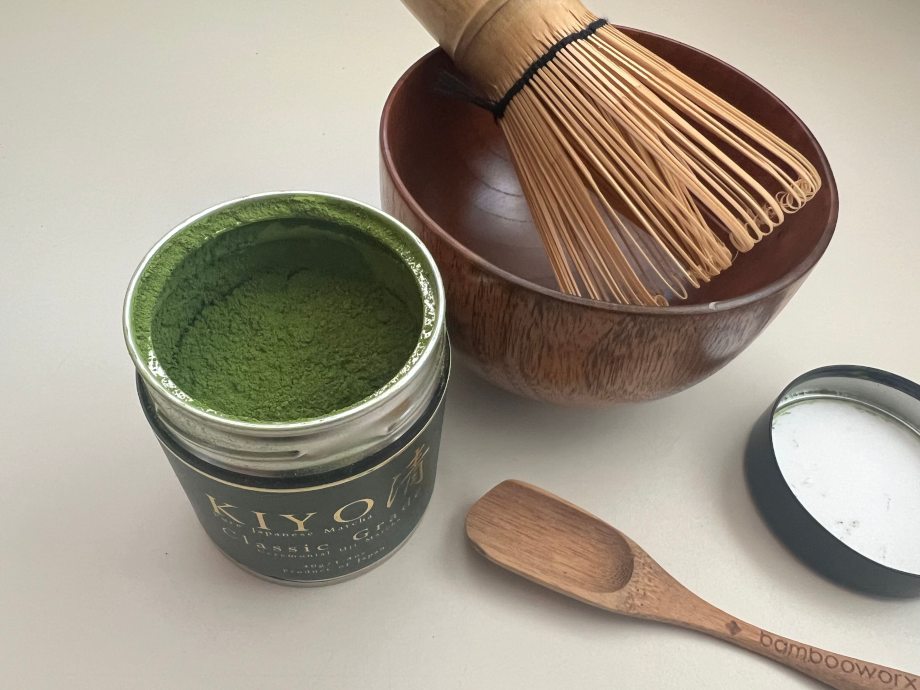
After pouring in the water, you use a whisk (traditionally a bamboo whisk, but any whisk will work) to stir and mix the concoction together. In our testing for preparation, we followed the preparation guidelines by each brand to see how easy—or difficult—preparing matcha was. Some matcha can be prepared in unheated water, which we noted, while others may need a bit more prep.
We also tried out a couple of different recipes to figure out which matcha powders were more versatile than others. Typically ceremonial grade matcha is ideal for drinking, while culinary grade matcha can be used for baking.
Taste
Our taste test is mainly a subjective score, as everyone has different preferences. Matcha in particular is a unique taste which may take a little bit of getting used to if you’re newer to green tea and matcha. That said, we did look at customer reviews to see if they had any issues with the flavor. We also tried the matcha in different ways—as a tea, as a latte, or as a spritz.
Side Effects
Here, we rated any side effects, positive or negative. Our testers noted if they had any digestive issues or stomach trouble after having their matcha; we also noted any energy boosts felt from the caffeine of the beverage. Since the caffeine content is fairly mild, we weren’t expecting any adverse side effects, but nevertheless our product testers noted when something was feeling off.
Benefits of Matcha Powder
With a mild caffeine content and several other health benefits, matcha powder is becoming a favorite of gym-goers and coffee enthusiasts who are looking for a pre-workout alternative. Here are a few reasons why this is becoming a staple in many people’s routines.
Is Rich in Antioxidants
Considered a superfood, matcha has a particularly high antioxidant content. In particular matcha contains catechins1, which are plant compounds that act as natural antioxidants.
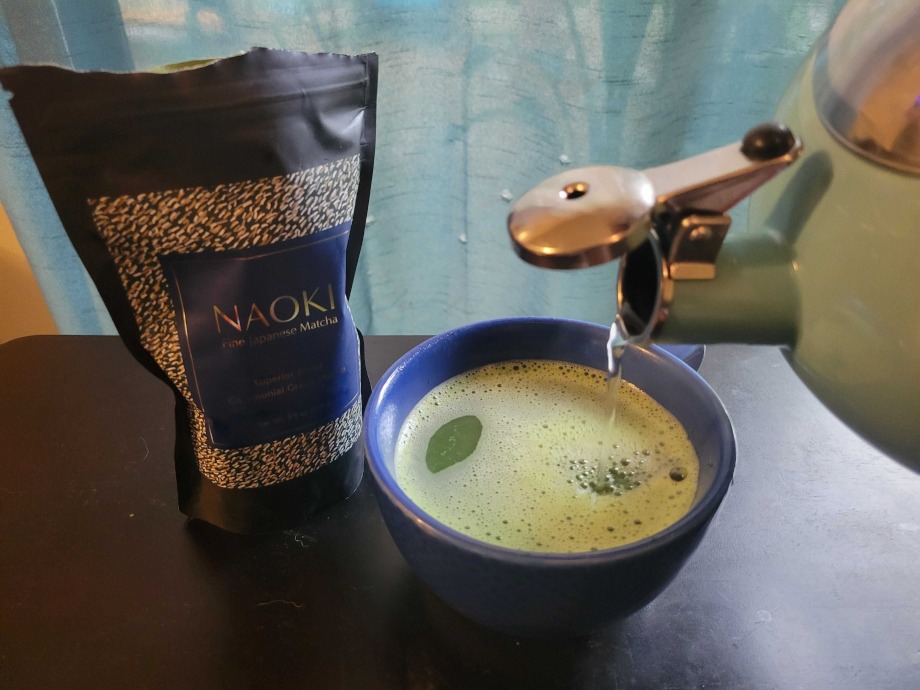
Matcha is grown primarily in the shade, which boosts chlorophyll production (giving it its green color) as well as amino acid content, but it also makes the catechin levels lower than most green tea when it’s harvested. When dissolved in water, though, the matcha can produce up to triple the amount of catechins2.
Adding antioxidants to your diet can potentially prevent cell damage and reduce your risk of several chronic diseases, according to a 2020 review3. The most abundant catechin in matcha is EGCG, which has been linked to preventing cancer in some laboratory tests4, although more research is needed.
Can Improve Focus and Energy
While only a mild amount, matcha powder contains a bit of caffeine—as much as 60 milligrams per gram. While not as much as a cup of coffee, it is more than traditional green tea. Along with the caffeine, there’s a good amount of natural L-theanine, an amino acid1 that helps promote focus and attentiveness while avoiding drastic drops in energy that can happen with caffeine consumption.
A randomized controlled trial from 20175 had 23 participants consume one of four items: a matcha tea, a matcha bar, a placebo, tea, or a placebo bar. Afterward, they participated in various cognitive tests. Those that had matcha showed improvements in their memory, focus, and reaction speed.
RELATED: Best Pre-Workout Ingredients
May Help With Heart Health
Although processed and consumed differently, green tea and matcha are derived from the same plant, Camellia sinensis, and because of this they have similar properties and compounds. While there haven’t been many studies with matcha, green tea has been linked to helping promote heart health.
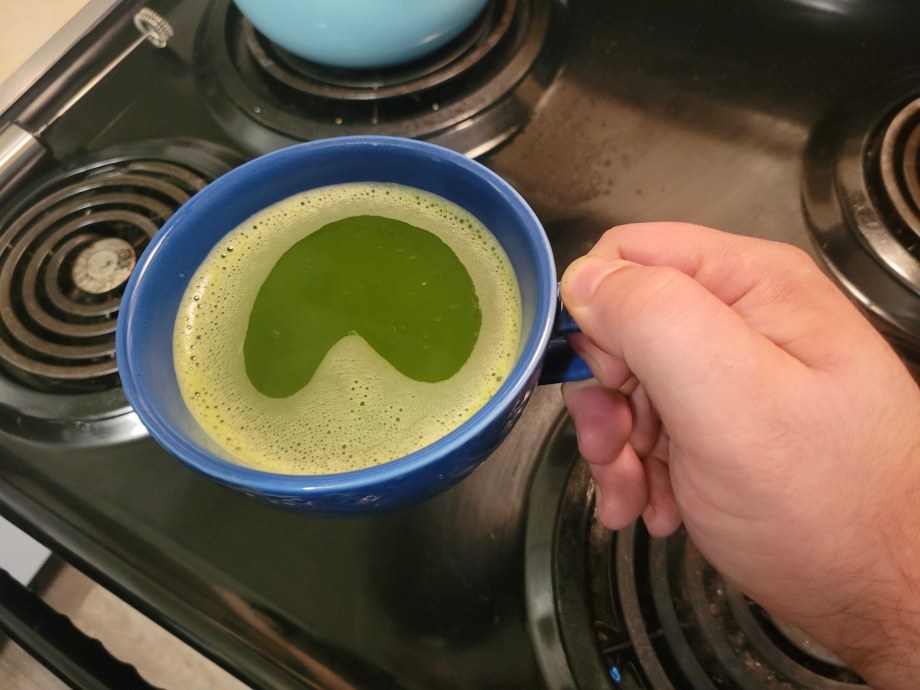
A 2022 study6 suggested that green tea consumption may lower your risk of cardiovascular disease when compared with coffee. It also shows it can lower the risk of complications of heart disease, like high blood pressure. Because of the similarities between matcha and green tea, many believe they can provide similar benefits, but ultimately more studies need to be conducted.
Can Aid In Weight Loss
Green tea has been shown to aid in weight loss, able to boost metabolism and therefore help burn fat more. Research shows7 that green tea consumption, with both proper diet and exercise, has helped people reduce their body mass index (BMI). These studies have focused mostly on green tea, but matcha powder can provide similar effects since it’s derived from the same plant; although research should be done to see how much of a benefit it is.
Potential Side Effects
Matcha powder and matcha tea is considered a safe drink for most people when taken in moderation. The largest aspect to consider is its caffeine content, which can lead to some negative side effects if taken in excess—jitters, headache, or increased blood pressure. Although its caffeine content is low compared to coffee, those who are sensitive to caffeine may want to consider their tolerance before becoming a matcha drinker.
Because of its caffeine content, matcha can also interfere with certain medications—particularly blood pressure medicine. If you’re taking medications, consult with a healthcare professional before regularly drinking matcha. Also, caffeine can affect sleep, so try to schedule your matcha intake earlier in the day, so it has less of a chance to interfere with the quality of your sleep.
How Much Matcha Should I Take Per Day?
Because studies on matcha in humans are still pretty limited, there’s no clear consensus on a daily dosage of matcha powder. Most studies available now tend to have used between 2 and 4 grams per day2,5, which is the equivalent of one or two matcha drinks. These dosages also showed marked improvements in attention and focus, so that’s probably a reasonable dosage for most people.
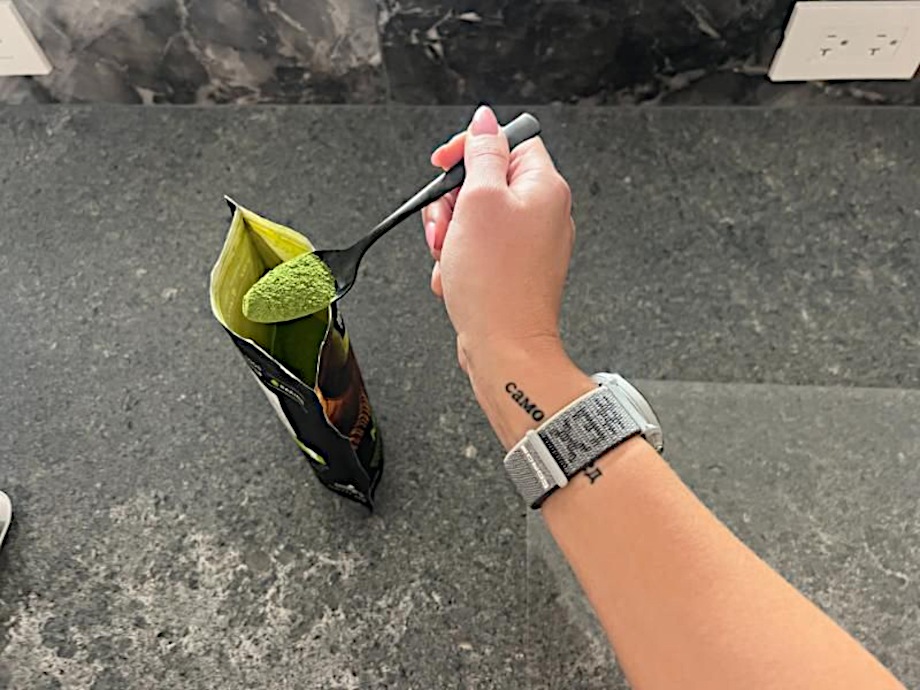
That said, your sensitivity to caffeine may affect how much you should safely have. Always talk to your doctor, especially if you have pre-existing conditions.
Third-Party Testing
There are typically two grades to matcha powder: ceremonial grade and culinary grade. Ceremonial grade matcha is considered the higher quality powder and is ideal for drinking, while culinary grade is better for baking.
While this is a good starting point to determine the type of matcha you want or need, having some sort of third-party testing of proof of quality is extremely helpful to know you’re getting the value you paid for.
“Ceremonial grade tea usually means a high-quality matcha,” warns Emelie, “but with the increase in popularity, some companies and brands are disingenuous with the quality of their matcha.”
She suggests doing a bit of research before purchasing your matcha, to make sure the tea is actually sourced from Japan if it makes that claim. “Also, look for certifications for the matcha,” Emelie adds. “Organic matcha that’s been certified helps verify the quality of the matcha, while other proof of quality assurances help as well.”
Buying Guide: What to Look for in Matcha Powder
The popularity of matcha powder in the last year has increased demand for Japanese matcha, although supply has remained relatively the same, threatening a matcha shortage, according to Emelie. “It can be hard at times to find store matcha,” she adds, “and Japan is strict in the amount of matcha they export from the country.”
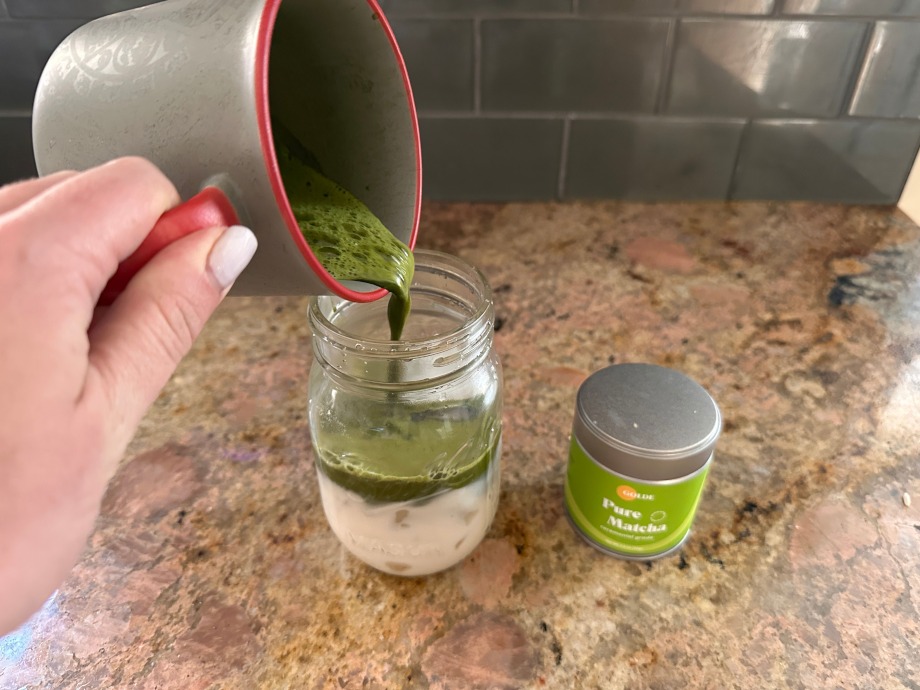
There’s still quite a few places online with plenty of high-quality matcha brands to choose from. Here are some things to consider before making your purchase.
Sourcing Region
Matcha, and tea in general, is similar to wine in that the region and location can impact the flavor and quality of the grapes—or in this case, the green tea leaves. Because of that and its longstanding history of producing matcha and tea, most consider the best matcha to come from Japan.
Certain regions in Japan are well-known for producing matcha, primarily Shizuoka, Uji, and Kagoshima. The best areas for growing matcha are high-elevation, cool areas that help boost the nutrient density of the shade-grown plants. Because many of these ideal regions are hilly, cultivating and producing matcha is more difficult, usually leading to a more expensive product—although it’s a higher quality matcha.
Harvest Time
Green tea, matcha, and all other teas (not including herbal teas), come from the same plant, Camellia sinensis, although green tea and matcha are derived from two subspecies of the plant. This tea plant can produce up to three harvests in a year, and each harvest yields leaves with varying qualities and characteristics.
The first harvest occurs in the spring and yields the highest quality of leaves, primarily because these leaves will have the highest nutrient and flavor content that was developed during the colder winter months. Matcha made from first harvest leaves are usually made into ceremonial grade matcha and have a vibrant green hue.
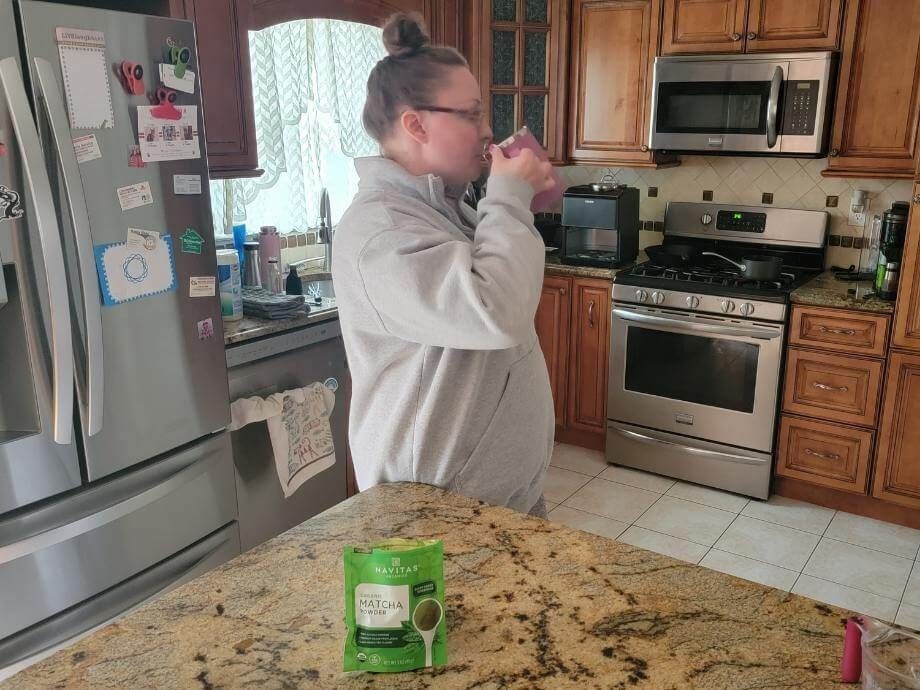
In the second harvest, leaves are still high quality, and these leaves are still used in many matcha powders, because the leaves still have many characteristics of first harvest leaves, but the yield is much more abundant. This matcha is still ideal for drinking.
The third harvest occurs in late summer or early fall. The leaves have matured at this point, providing a more robust flavor. These leaves are usually used for culinary grade matcha, as the stronger bitterness won’t get lost while baking or cooking.
Cost
The cost of matcha can vary, depending mostly on the quality, sourcing, and amount of matcha. It’s important to note that the highest quality matcha will also be the most expensive…but if you’re new to matcha powder, there are some ceremonial grade matcha powders available that have good taste—a great place for new users.
Culinary matcha is less expensive than ceremonial grade matcha; however, these powders are ideal for baking, and not for drinking, as the leaves are harvested later and will be more bitter.
FAQs About the Best Matcha Powders
Which brand of matcha is the best?
The ideal matcha powder can vary depending on your needs and potential uses for matcha. For most, I recommend Naoki Ceremonial Grade Matcha Powder, as it is a high-quality matcha that’s ceremonial grade, ideal for drinking. Along with this, Naoki provides several recipes and tips on their website for new users to try out new drinks.
What type of matcha powder is best for drinking?
Ceremonial grade matcha powder is best for drinking, as this matcha is produced from earlier harvests. Because of this, they have a nice flavor and are nutrient-rich.
Is it safe to drink matcha powder every day?
For most people, it’s safe to drink matcha daily in moderation. Most studies suggest that 2 to 4 grams a day is enough to improve attentiveness and energy. People with caffeine sensitivity or heart issues may want to consult their doctor before using matcha, however.
These statements have not been evaluated by the Food and Drug Administration. This product is not intended to diagnose, treat, cure, or prevent any diseases.
References
- Kochman, J., Jakubczyk, K., Antoniewicz, J., Mruk, H., & Janda, K. (2020). Health Benefits and Chemical Composition of Matcha Green Tea: A Review. Molecules (Basel, Switzerland), 26(1), 85. https://doi.org/10.3390/molecules26010085
- Sokary, S., Al-Asmakh, M., Zakaria, Z., & Bawadi, H. (2022). The therapeutic potential of matcha tea: A critical review on human and animal studies. Current research in food science, 6, 100396. https://doi.org/10.1016/j.crfs.2022.11.015
- Janciauskiene S. (2020). The Beneficial Effects of Antioxidants in Health And Diseases. Chronic obstructive pulmonary diseases (Miami, Fla.), 7(3), 182–202. https://doi.org/10.15326/jcopdf.7.3.2019.0152
- Bonuccelli, G., Sotgia, F., & Lisanti, M. P. (2018). Matcha green tea (MGT) inhibits the propagation of cancer stem cells (CSCs), by targeting mitochondrial metabolism, glycolysis and multiple cell signalling pathways. Aging, 10(8), 1867–1883. https://doi.org/10.18632/aging.101483
- Dietz, C., Dekker, M., & Piqueras-Fiszman, B. (2017). An intervention study on the effect of matcha tea, in drink and snack bar formats, on mood and cognitive performance. Food research international (Ottawa, Ont.), 99(Pt 1), 72–83. https://doi.org/10.1016/j.foodres.2017.05.002
- Teramoto, M., Yamagishi, K., Muraki, I., Tamakoshi, A., & Iso, H. (2023). Coffee and Green Tea Consumption and Cardiovascular Disease Mortality Among People With and Without Hypertension. Journal of the American Heart Association, 12(2), e026477. https://doi.org/10.1161/JAHA.122.026477
- Lin, Y., Shi, D., Su, B., Wei, J., Găman, M. A., Sedanur Macit, M., Borges do Nascimento, I. J., & Guimaraes, N. S. (2020). The effect of green tea supplementation on obesity: A systematic review and dose-response meta-analysis of randomized controlled trials. Phytotherapy research : PTR, 34(10), 2459–2470. https://doi.org/10.1002/ptr.6697


